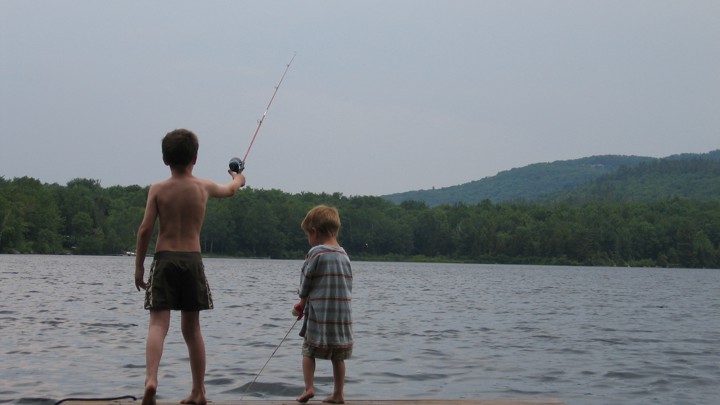The authors studied the schedules and play habits of 70 six-year-old children, measuring how much time each of them spent in “less structured,” spontaneous activities such as imaginative play and self-selected reading and “structured” activities organized and supervised by adults, such as lessons, sports practice, community service and homework. They found that children who engage in more free play have more highly developed self-directed executive function. The opposite was also true: The more time kids spent in structured activities, the worse their sense of self-directed control. It’s worth noting that when classifying activities as “less structured” or “structured,” the authors deemed all child-initiated activities as “less-structured,” while all adult-led activities were “structured.”
All of this is in keeping with the findings of Boston College psychology professor Peter Gray, who studies the benefits of play in human development. In his book Free to Learn: Why Unleashing the Instinct to Play Will Make Our Children Happier, More Self-Reliant, and Better Students for Life, he elaborates on how play supports the development of executive function, and particularly self-directed control:
Free play is nature’s means of teaching children that they are not helpless. In play, away from adults, children really do have control and can practice asserting it. In free play, children learn to make their own decisions, solve their own problems, create and abide by rules, and get along with others as equals rather than as obedient or rebellious subordinates.
When we reduce the amount of free playtime in American preschools and kindergartens, our children stand to lose more than an opportunity to play house and cops and robbers. Some elementary programs recognize the importance of play and protect its role in preschool and kindergarten. Montessori schools and Tools of the Mind curricula are designed to capitalize on the benefits of self-directed free play and student-initiated activities. Tools of the Mind programs, for example, place even more importance on developing executive function than on academic skills. In their terminology, “self-regulation” is the key to success both in school and in life:
Kindergarten teachers rank self-regulation as the most important competency for school readiness; at the same time, these teachers report that many of their students come to school with low levels of self-regulation. There is evidence that early self-regulation levels have a stronger association with school readiness than do IQ or entry-level reading or math skills, and they are closely associated with later academic achievement.
This is not news to most teachers, who, when tasked with educating increasingly crowded classrooms, hope and pray for students with well-developed executive function. The ability to self-direct can spell the difference between an independent student, who can be relied upon to get her work done while chaos reigns around her, and a dependent, aimless student, who is distracted by his classmates and must be guided from one task to the next.
Parents, if you really want to give your kid a head start on coming school year, relinquish some of that time you have earmarked for lessons or sports camp and let your children play. That’s it. Just play. Grant them time free from your ulterior motives and carefully planned educational outcomes. Let them have dominion over their imaginary kingdoms while their evil dragons, white wizards, marauding armies, and grand battles for supremacy unfurl according to their whims and wills.
We want to hear what you think about this article. Submit a letter to the editor or write to letters@theatlantic.com.
****************************










